24 Hours Hotline: +86 137-3541-1378
Email:xian@tripstoshanghai.com
24 Hours Hotline: +86 137-3541-1378
Email:xian@tripstoshanghai.com
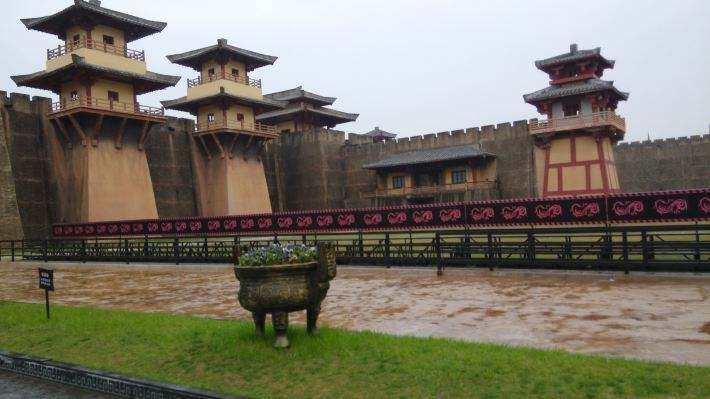
Overview
The Qin Dynasty, the first empire in Chinese history, was founded in 230 BC. The leaders of the state of qin should annex six countries and then declare themselves emperor. The empire existed only briefly from 221 to 206 B.C., but the Qin Dynasty had a lasting cultural impact on the dynasties that followed.
The First Emperor of Qin Dynasty (Qinshihuang)
Qin Shi Huang, Shi Huangti or Shih Huan-ti was the first emperor of a unified China. Shi Huangdi means `First Emperor’ and is a title, not a proper name. The Qin Dynasty he founded (pronounced `Chin’) gave its name to China and it was he who first initiated the building of the Great Wall and construction of the Grand Canal.
He was born Ying Zheng (also known as Zhao Zheng), ying surname, Zhao family name, first name zheng (once said the name "zheng"), also known as zu long, the son of a dancing girl named Zhao Ji and King Zhuangxiang of Qin. He was the Ancient Chinese statesman, strategist, reformer, the first politician to complete the unification of China, and the first emperor to be called an emperor in China.
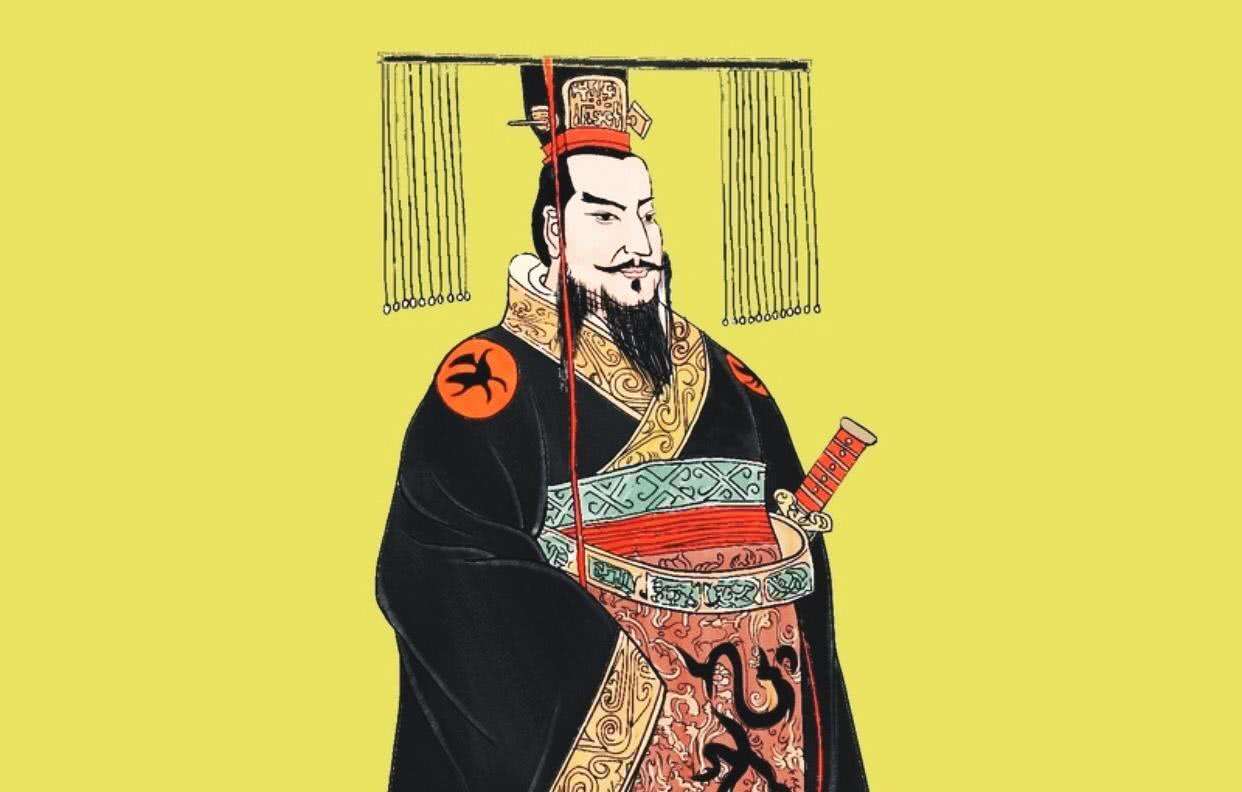
Capital of Qin Dynasty
The Qin Dynasty was in place in Ancient China from 221 – 207 BCE. It was ruled by the self-proclaimed emperor, Qin Shihuangdi, (221 – 210 BCE) and by Emperor Er Shi (210 – 207 BCE).
The Qin region was located in modern-day Shaanxi province, north of the Zhou Dynasty territory. The capital of the Qin Dynasty was Xianyang, which was extensively enlarged after Qin dominance was established.
Prior to the Qin dynasty, the area occupied by the Ancient Chinese was divided into states, which were ruled over by different families with a king as head of each state. This is why the period just before the Qin Dynasty (453 – 221 BCE) is known as the Warring States Period.
The Rise of the Qin Dynasty
The earliest people of the state of Qin belonged to the Chinese nationality (han). In order to make the Qin Dynasty stronger, the king of qin issued a series of policies to recruit talents, such as land allocation and official positions
When Shang Yang of wei heard the news, he went to the state of qin. The leader of qin made him the prime minister. With his help, the state of qin carried out legal reforms. Shang Yang was a vigorous reformer, systematically reworking the social order of Qin society, eventually creating a massive, complicated bureaucratic state and advocating for the unification of Chinese states.
During the short period of Shang Yang's reform, the Qin Dynasty greatly improved its national strength and people lived and worked in peace and contentment. Qin soon became the first powerful state in the warring states period, which was an important step in the rise of the qin dynasty.
Destroy the six states and unify the whole ancient China
The powerful state of Qin was feared by all the small neighboring states. In a short period of ten years, with its powerful military power, qin conquered six neighboring countries and annexed their territory.
In 230 BC, first conquered the state of Han.
In 228 BC, the state of Zhao was conquered.
In 227 BC, the state of Yan sent an assassin named Jing ke to assassinate the king of qin. After the defeat, Qin conquered Yan
In 225 BC, the state of Wei was conquered.
In 223 BC, the state of Qin sent 600,000 troops to conquer the state of Chu
In 222 BC, the state of Liao was conquered
In 221 BC, the state of Qi was declared extinct
From then on the authoritarian centralised han unification began. This is a special great event in ancient history.
Establish Harsh Criminal Law and consolidate the control
The long-term impact of the split situation made the first emperor of Qin very concerned about the movements of the old land of the six states and the plans of the old aristocrats of the six countries for restoration. In order to prevent the reappearance of the separatist regime, the first emperor of Qin moved the nobles of the six kingdoms to Xianyang, and the other part to Bashu, Nanyang, etc. to separate them from the local areas for surveillance.
In the more than ten years after the unification of Qin, the first emperor of Qin maintained a huge army, established a huge bureaucracy, carried out many large-scale wars, and completed a huge national defense construction and civil construction. It is estimated that at that time, the population of the whole country was more than 10 million, while the number of people serving in the army was more than 2 million, accounting for more than one third of young men.
Towards Extinction
According to historical experience, there must be resistance when there is oppression. After the death of the first emperor of Qin in 209 BC, Hu Hai, his son, came to the throne. He further increased the exploitation and oppression of the peasants, which made more and more people opposed him. The remaining aristocratic forces of the six kingdoms, who have been lurking in the Qin State for many years, are carrying out the activities of splitting the Qin state. The decisive event is famous: Chen Sheng, Wu Guang uprising.
In two years time, most of the empire had revolted against the new emperor, creating a constant atmosphere of rebellion and retaliation. Warlord Xiang Yu in quick succession defeated the Qin army in battle, executed the emperor, destroyed the capital and split up the empire into 18 states.
Liu Bang, who was given the Han River Valley to rule, quickly rose up against other local kings and then waged a three-year revolt against Xiang Yu. In 202 B.C., Xiang Yu committed suicide, and Liu Bang assumed the title of emperor of the Han Dynasty, adopting many of the Qin dynasty institutions and traditions.
Achievement of Qin Dynasty
The Qin Dynasty has perished, but this country has brought countless precious wealth to China in the future. The specific achievements as below:
1) Unifying characters, making them the foundation of a nation, and using them till now.
2) Unify currency and measure, greatly facilitate domestic exchange in business.
3) Unifies the track distance of ancient means of transportation, unifies the width and narrow degree of the road, and constructs the straight road of Qin state, which greatly facilitates the domestic transportation;
4) Building the Great Wall to resist the invasion of nomadic people in the North.
5) War to the South,bring Fujian, Zhejiang and Guangdong into China's territory.
The origin of terracotta warriors
Terracotta Warriors is a kind of ancient tomb sculpture. In ancient times, human sacrifice was practiced. Slaves were accessories of slave owners before their death. After their death, slaves were buried as martyrs for slave owners. The terra cotta warriors and horses are made into burial objects in the shape of soldiers (chariots, horses, soldiers).
Influence
Although the Qin Dynasty perished, the first emperor of Qin left too much "property" to China. Legalism has a lasting influence on the whole Chinese history. Qin Dynasty created the standard of bureaucratic government, and Qin Shihuang's legal policy is still prevailing in China. In addition, the dynasty has left behind a miracle of ancient art: the terracotta warriors in Xi'an. However, the most famous legacy left by Qin Shihuang is the great wall of China.
Wechat: Chinaprivatetour
24 Hours Hotline:
+86 137-3541-1378
* Authentic Experiences: Genuine local experiences that immerse you in the true essence of Xi'an and beyond.
* Safety First: Highest safety standards with secure activities and reliable transportation.
* Customizable Tours: Flexible itineraries tailored to your interests and needs.
* Local Expertise: In-depth knowledge of Xi'an and China, offering exclusive insights.
* Professional Guides: Licensed bilingual guides with over 5 years of experience.
* Comfortable Travel: Experienced drivers and well-maintained vehicles for a smooth journey.
* Sustainable Tourism: Commitment to responsible tourism and supporting local communities.
* Customer-Focused: Personalized service and continuous improvement based on your feedback.
* Free Cancellation: Cancel up to 24 hours before travel for flexibility and peace of mind.
* 24/7 Support: Round-the-clock assistance for any questions or help needed.
(Your Privacy is Protected)
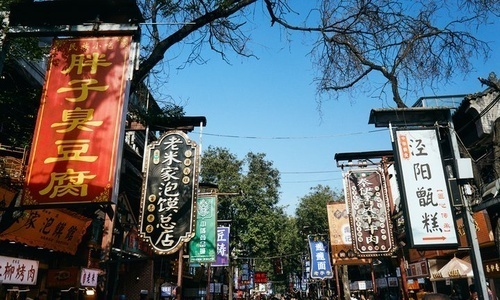 Xi'an Muslim Quarter Travel Guide: Street Food, Culture & Nightlife
Xi'an Muslim Quarter Travel Guide: Street Food, Culture & Nightlife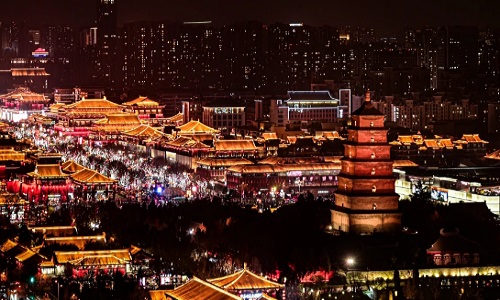 Exploring Grand Tang Mall Xi'an: Shopping, Dining, and Entertainment in the Heart of the Ancient City
Exploring Grand Tang Mall Xi'an: Shopping, Dining, and Entertainment in the Heart of the Ancient City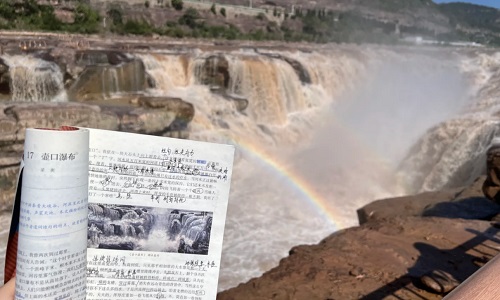 Hukou Waterfall Travel Guide: Visiting the Yellow River’s Most Spectacular Hukou Waterfall from Xi'an
Hukou Waterfall Travel Guide: Visiting the Yellow River’s Most Spectacular Hukou Waterfall from Xi'an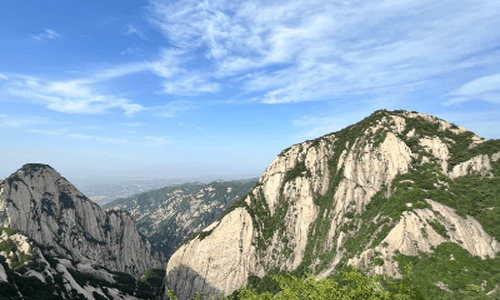 Huashan Mountain Travel Guide: Hiking the Most Dangerous and Beautiful Peak in China
Huashan Mountain Travel Guide: Hiking the Most Dangerous and Beautiful Peak in China The Song of Everlasting Sorrow: A Timeless Tale of Love and Tragedy in Xi'an
The Song of Everlasting Sorrow: A Timeless Tale of Love and Tragedy in Xi'an Xi’an Qinling Wildlife Park Travel Guide: Explore the Best Zoo Experience in Xi’an
Xi’an Qinling Wildlife Park Travel Guide: Explore the Best Zoo Experience in Xi’an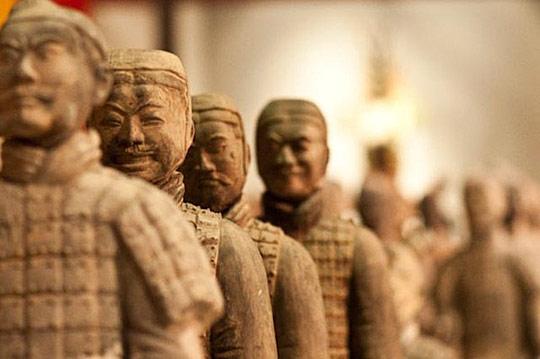 Discover the Terracotta Warriors in Xi’an: A Complete Guide to China’s Ancient Army
Discover the Terracotta Warriors in Xi’an: A Complete Guide to China’s Ancient Army 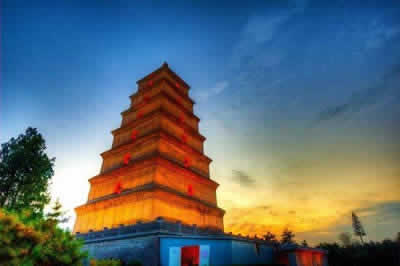 Big Wild Goose Pagoda
Big Wild Goose Pagoda1 to 1 tailor-made service from our professional travel advisors for the most sophisticated
Constantly excellent reviews for attraction, hotel and service Competitive price
Local experts provide quality tours Best selected knowledgeable local guides Authentic local restaurants
7*24 hours available to create you a worry-free tour. No Hidden Fees and absolutely no pressure to buy. Secured









Copyright © 2017 www.xianprivatetour.com All rights reserved. 浙ICP备18056007号-6